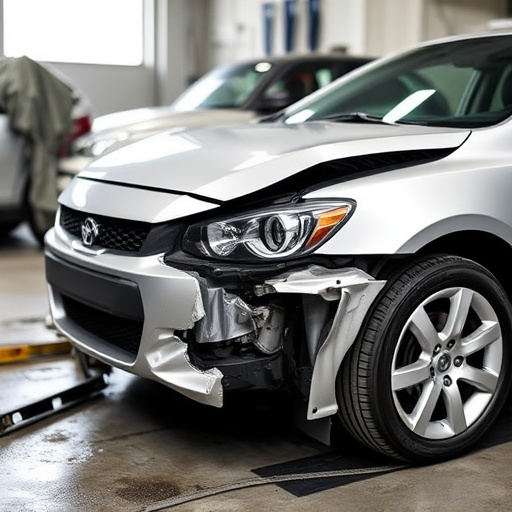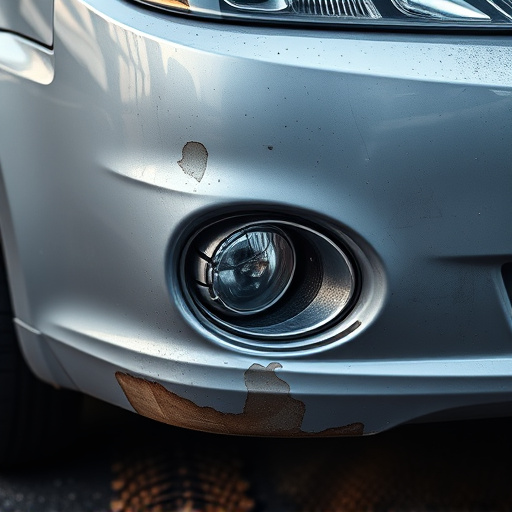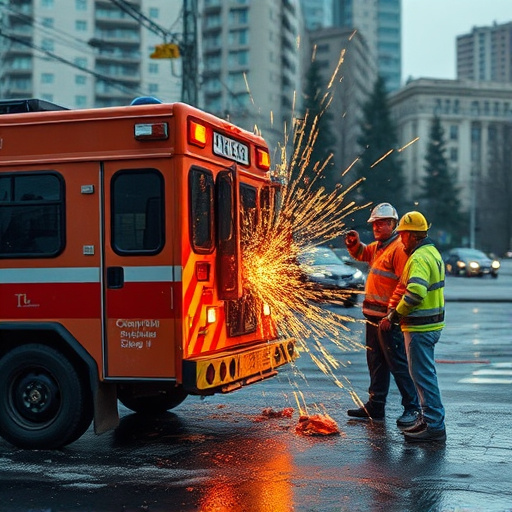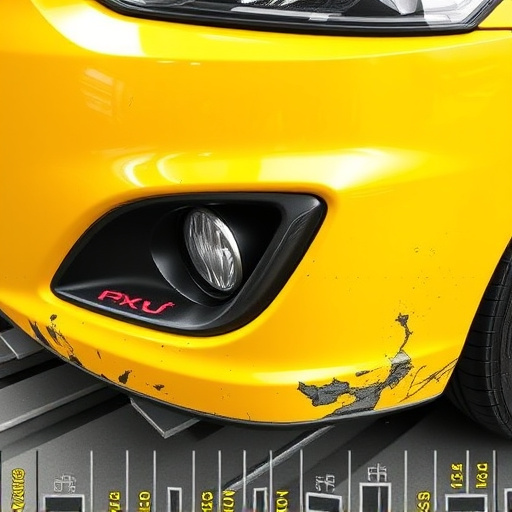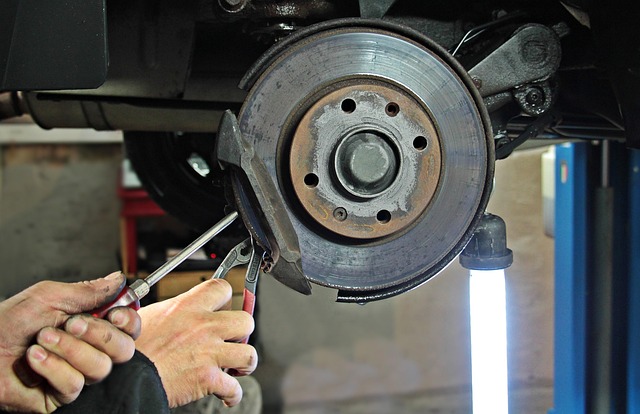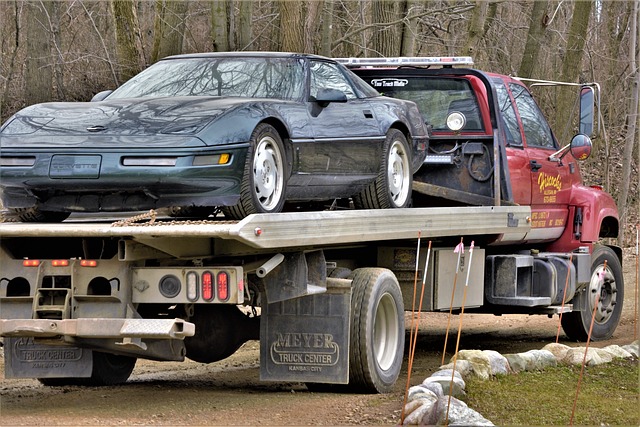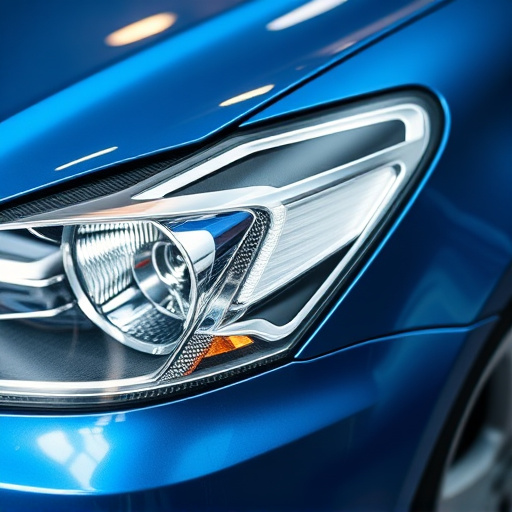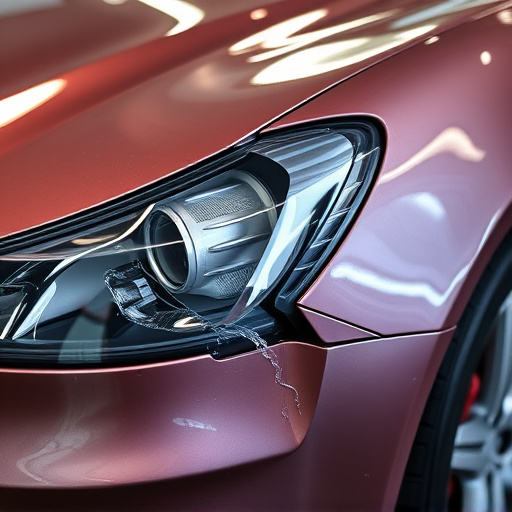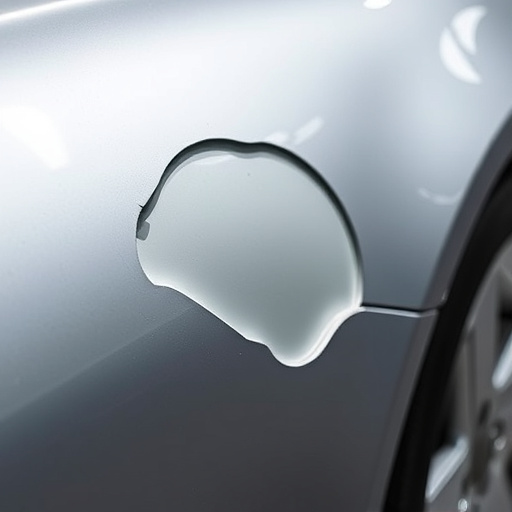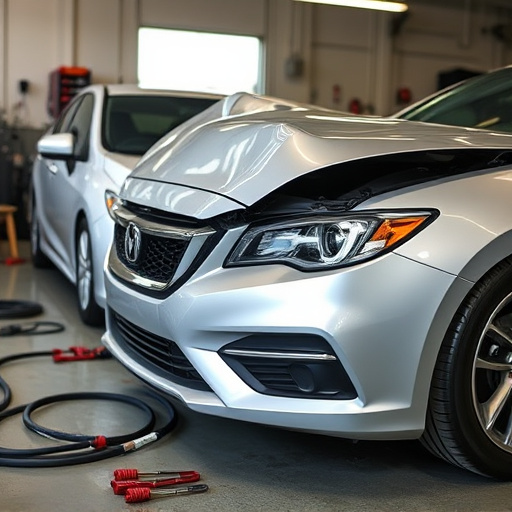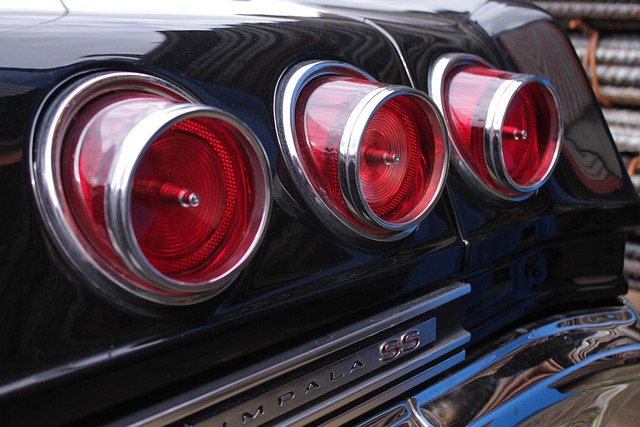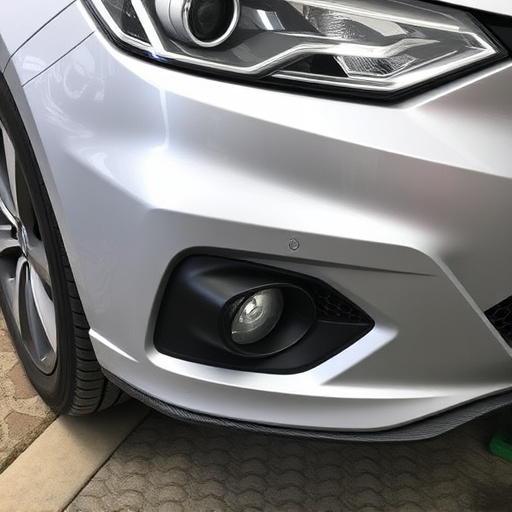The Collision Repair Certification Exam is a crucial assessment for automotive technicians, covering diverse skills from welding and panel replacement to advanced painting techniques. Technicians should prepare by understanding the exam format, studying metal fabrication, structural repair, and paint services, and practicing with sample questions. Success ensures they can provide high-quality repairs in any body shop.
“Collision repair certification is a gateway for automotive technicians to elevate their skills and secure better career opportunities. This article explores the comprehensive path to passing the certification exam, designed to test knowledge in various aspects of collision repair. We delve into the different exam formats, crucial topics, and the significant advantages of obtaining this credential.
Technicians can harness effective preparation strategies, including utilizing study materials, structured plans, and online resources. Additionally, hands-on training, workshops, and internships play pivotal roles in enhancing practical skills.”
- Understanding the Collision Repair Certification Exam
- – Types of certification exams
- – Topics covered in the exam
Understanding the Collision Repair Certification Exam

The Collision Repair Certification Exam is a crucial step for technicians looking to validate their skills and knowledge in the automotive industry. This comprehensive assessment is designed to evaluate a technician’s proficiency in various aspects of collision repair, from basic welding and panel replacement to advanced painting and finishing techniques. Understanding the exam format and content is essential for successful certification.
Technicians preparing for this exam should familiarize themselves with the specific sections covered, including metal fabrication, structural repair, and, notably, vehicle paint services. Many study materials provide practice questions and sample tests, enabling candidates to assess their readiness and identify areas that may require further review. By mastering the collision repair certification exam’s demands, technicians can confidently step into any vehicle body shop, armed with the skills needed for top-notch repairs.
– Types of certification exams

Collision repair certification exams are a crucial step for technicians seeking to validate their skills and knowledge in the field. These assessments typically cover a wide range of topics, from basic vehicle structures and safety protocols to advanced repair techniques and industry standards. The types of certification exams can vary depending on the region and the certifying body, but they often include written components, practical demonstrations, and even virtual simulations.
Written exams delve into theoretical knowledge, focusing on understanding vehicle systems, materials science, and repair methodologies. Practical examinations, on the other hand, require technicians to demonstrate their abilities in real-world scenarios, such as fixing a vehicle dent repair, conducting panel replacement, or mastering specialized tools for collision repair services. Some organizations also incorporate digital assessments, simulating complex collision scenarios that test problem-solving skills and adaptability in modern repair environments.
– Topics covered in the exam

The collision repair certification exam is a comprehensive assessment designed to test the knowledge and skills of technicians in various aspects of auto body repair. Topics covered include a wide range of procedures essential for restoring vehicles to their pre-accident condition. This includes detailed sections on structural repair, where candidates must demonstrate proficiency in straightening and aligning damaged vehicle frames. Additionally, the exam delves into paintless dent repair techniques, crucial for fixing minor car scratches and dents without extensive repainting.
Other key areas focus on panel replacement, welding, and bonding, ensuring technicians can handle different types of damage effectively. The assessment also covers safety protocols and the use of specialized tools common in modern auto collision centers. Understanding material properties, such as metal alloys and composite materials, is another critical aspect, as it enables technicians to select the right repair methods for various vehicle components. This diverse range of topics ensures that certified professionals are well-prepared to tackle a variety of challenges encountered in auto body repair.
Collision repair certification is a crucial step for technicians aiming to master their craft. By understanding the exam’s structure and content, candidates can effectively prepare and enhance their career prospects. Through dedicated study of key topics like panel replacement, welding, and safety protocols, technicians can confidently navigate the collision repair certification process, ensuring they possess the necessary skills for successful careers in this dynamic industry.
